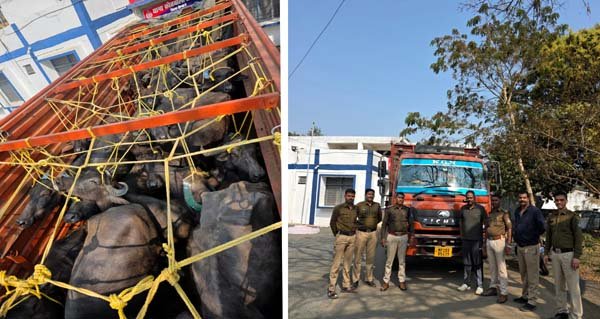New Delhi, Nov 13 (UNI) The Supreme Court on Thursday ruled that delay in trial or prolonged incarceration cannot, by itself, justify the grant of bail in cases involving commercial quantities of narcotic drugs where the mandatory twin conditions under Section 37 of the Narcotic Drugs and Psychotropic Substances (NDPS) Act are not met.
A Bench comprising Justice Aravind Kumar and Justice N.V. Anjaria set aside two orders of the Bombay High Court that had granted bail to Vigin K. Varghese, an accused in major cocaine and methamphetamine seizures investigated by the Directorate of Revenue Intelligence (DRI).
The Court remitted the matter to the High Court for fresh consideration.
According to the prosecution, the DRI had seized 50.232 kg of cocaine on October 6–7, 2022, from a refrigerated container imported from South Africa in the name of a company where Varghese is a Director.
The narcotics were allegedly concealed inside cartons of green apples mixed with the declared cargo.
The prosecution further pointed to an earlier seizure on October 2, 2022, involving 198.1 kg of methamphetamine and 9.035 kg of cocaine, allegedly linked to the same smuggling network.
Statements recorded under Section 67 of the NDPS Act purportedly indicated Varghese’s role in coordinating imports, liaising with an overseas associate, and overseeing logistics operations.
The Supreme Court held that the High Court granted bail without recording the mandatory satisfaction required under Section 37(1)(b), namely, that there are reasonable grounds to believe the accused is not guilty, and that he is not likely to commit an offence while on bail.
The Bench observed that the High Court had mainly relied on factors such as prolonged custody, anticipated delay in trial, absence of criminal antecedents, and lack of direct proof of knowledge, an approach the apex court found “legally unsustainable” in NDPS cases involving commercial quantities.
“Such a finding is not a casual observation. It constitutes the statutory threshold under Section 37(1)(b)(ii), which must rest on careful appraisal of the material available,” the Court said, adding that any conclusion drawn without addressing the prosecution’s claims of operative control and prior involvement would intrude upon the trial court’s domain.
The Court further emphasised that offences involving commercial quantities stand on a distinct statutory footing, and that Section 37 imposes a specific embargo on the grant of bail. Courts must therefore record satisfaction on both statutory requirements in addition to the ordinary tests under the Code of Criminal Procedure.
Holding that the High Court had overlooked crucial prosecution material, the Supreme Court set aside the bail order and directed the High Court to reconsider the bail plea strictly in accordance with Section 37 and pass a reasoned order within four weeks.
As an interim measure, the Bench allowed Varghese to remain on bail under the same conditions until the High Court delivers its fresh decision.
The Court clarified that any violation of bail terms would permit the prosecution to seek immediate cancellation.
The Supreme Court made it clear that it had expressed no opinion on the merits of the case.
Additional Solicitor General Raghavendra P. Shankar appeared for the union of India.











